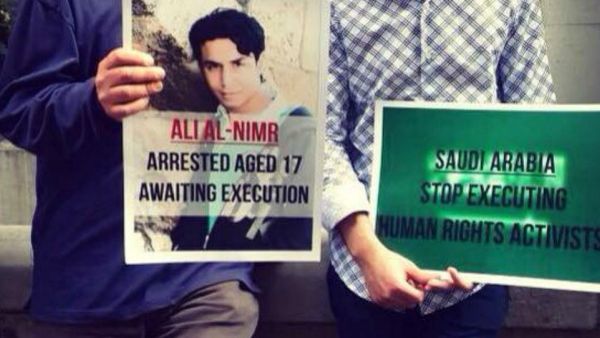In 2012, then-17-year-old Ali Mohammed al-Nimr was arrested on questionable charges of illegal protesting and gun possession, the International Business Times reported. It was part of the kingdom's crackdown on anti-government protests in the Qatif province, though it's unclear how involved al-Nimr was in the demonstrations.
There was never any evidence to support the gun charge, let alone the accusations of "waging war on God." Two years later he was sentenced to "death by crucifixion."
Britan-based legal aid group Reprieve said the teen was tortured to force a confession, and it's likely he was targeted solely because of who his uncle is. Sheikh Nimr al-Nimr is a well-known critic of the Saudi government.
"No one should have to go through the ordeal Ali has suffered — torture, forced 'confession' and an unfair, secret trial process, resulting in a sentence of death by 'crucifixion,'" Reprieve Director Maya Foa said in a statement.
So when word spread about al-Nimr last week, social media users organized a Twitter storm to bring his case to the forefront.
“Those who are silent when others areoppressed are guilty of oppressionthemselves.” Twitter Storm #FreeNimr #Pak11pm pic.twitter.com/5F4KaGdZwG
— SkinnyCanWrite (@TwoTwoAlys) September 14, 2015Quran instructs believers not to sit idle in face of injustice, corruption, evildoers, and oppressors #FreeNimr pic.twitter.com/D5ufGV6Yni
— Mission Ahlul Bayt (@BandeKhuda) September 14, 2015You stand with justice, help us put some pressure on #Saudi regime. If the world will stand idle, we won't #FreeNimr pic.twitter.com/ymULIJerEP
— Hamosh (@Hamosh84) September 14, 2015Saudi Arabia is one of the few countries still performing public executions and has executed at least 175 people in the past year alone. The country's made headlines earlier this year when high demand led to the kingdom's job postings for eight more executioners.
By Hayat Norimine







